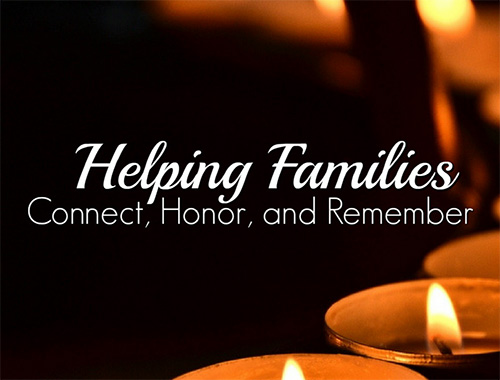Is a Remembrance Service Appropriate?
Yes, a remembrance service is a caring and meaningful event during which family and friends have an opportunity to honor their loved one and say a last “good-bye.” Viewing the deceased’s body before cremation often helps the bereaved accept the fact that a death has occurred and resolve grief more readily.
How is a cremation service different from a traditional funeral service?
It isn’t – at least it doesn’t have to be different. The extent and the content of a cremation service is entirely subject to the wishes of the family. Family members may choose as much or as little as they would like.
Is a casket required?
Most crematories require that the body at least be enclosed and in an acceptably rigid container. This container or casket must be strong enough to assure the protection of the health and safety of the operator. It should provide a proper covering for the body and meet reasonable standards of respect and dignity. Some crematories will accept metal caskets and some require that the casket or container be fashioned of a combustible material. The body is cremated in the same enclosure in which it arrives at the crematory.
How is cremation accomplished?
The enclosed body is placed in the cremation chamber where through heat and evaporation the body is reduced to its basic elements, which are referred to as cremated remains. It may surprise many to learn that ashes are not the final result since cremated remains have neither the appearance nor the chemical properties of ashes – they are, in fact, bone fragments. After preparation, these elements are either placed in a permanent urn or in a temporary container that is suitable for transport.
Isn’t cremation an end in itself?
Some people may regard it as such, but most families feel that the cremated remains of someone they love should be afforded a resting place that can be identified by the name and dates. This is memorialization. Most families find that a memorial, regardless of its size, serves as a basic human need to remember and be remembered.
What choices of memorialization are available?
A final resting place for cremated remains can be provided by various means. The family may choose from a full selection of urns for permanent containment of the cremated remains. The urns may be placed in a columbarium, which is a building or structure where single niche space or family units may be selected. Niches are recessed compartments enclosed by either glass protecting the engraved urn or ornamental fronts upon which the name and dates are engraved. Of course, family lots may be used, and cemeteries often permit the internment of more than one person in an adult space if cremation has occurred. In some cemeteries there are also specially designed areas for this purpose; these are called urn gardens.
How does the cost of cremation compare with burial or entombment?
The basic charge for just cremation is somewhat less than traditional burial. However, with so many items of service available both in the funeral service before and in the mode of disposition after, it’s not possible to make an accurate comparison. Again, the family has the option to select as much or as little as it so chooses.
Is a funeral director necessary?
Some governmental jurisdictions require a licensed person to transport a body and to obtain the necessary permits. Funeral directors are among those so licensed and are the only ones permitted to do so in some jurisdictions. Normally, the funeral director performs the same professional functions regarding cremations as in any other service.
Is embalming necessary?
No, but the factors of time, health and possible legal regulations and religious beliefs might make embalming prior to cremation either appropriate or necessary.
Are more people choosing cremation today?
Yes. The subject should certainly be resolved among family since that determination will have to be made at the time of death. The family should consult together ahead of time to decide what is best for all. Arrangements for memorialization also should be made at this time. By doing so, one of life’s most difficult decisions need not be made alone at a time of grief and confusion.
Download our Cremation Frequently Asked Questions PDF.

